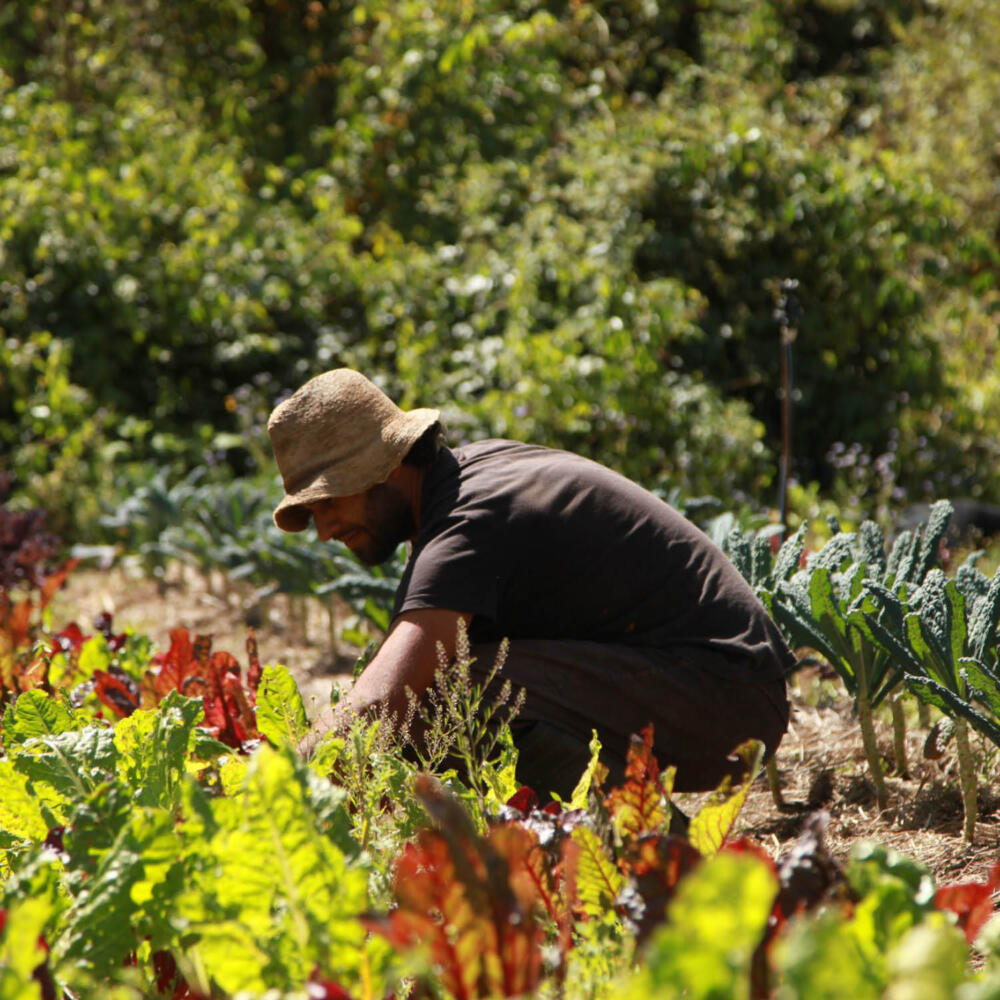Human, animal, plant and soil health
A research project conducted by the Sections for Agriculture and Medicine asks about strengthening human, animal, plant and soil health.
The ecological crisis and the increase in epidemics caused by zoonoses (infectious pathogens transmitted to humans often as a result of human interference in nature) make it ever more urgent to ask about human health in connection with the heath and biodiversity of soil, plants and animals. In 2022, the Section for Agriculture and the Medical Section embarked on a collaboration with the Swiss Tropical and Public Health Institute in Basel (Professor Jakob Zinsstag) and the Dutch Louis Bolk Institute with the aim of examining and improving the health of farms in Europe by using the One Health approach.
One Health focuses on
* examining human, animal, plant and soil health scientifically and discussing the results with the affected parties
* defining together with the affected parties – primarily farmers, possibly also municipalities and cooperating economic enterprises such as dairy farms – steps to improve health at all levels and making sure these steps are implemented
* the scientific assessment of this implementation.
Expanding the research question
The group originally planned to concentrate on dairy farms, partly due to cows being central to biodynamic farming since the dairy industry is viewed particularly critically by the growing vegan movement, and because the economic pressures in this field are particularly vehement. As the project continues, the focus has widened to include various enterprises that practise animal husbandry.
In 2024, qualitative interviews were conducted with selected farmers. They revealed
* the close link between the mental and partly also physical wellbeing of farmers with the health of their animals, and how much people suffer when excessive expectations dominate as is the case in the dairy and poultry industry etc.
* the long-term positive effect of biodynamic farming on climate change by improving soil quality and resilience
* the general importance of awareness of and readiness to support soil, plant, animal and human health
* the effect of a positive relationship with consumers, conveying a sense of meaning and wellbeing (feeling appreciated, relating to customers in their farm shop or in the marketing of their produce) as opposed to a feeling of isolation
* the frequent concern experienced by farmers due to economic pressures and the dependency on national or international support programmes
* the importance of stable relationships in the supply chain, for instance with dairies and wholesalers.
Scientifically supported conversion to biodynamics
The Louis Bolk Institute in the Netherlands is currently conducting initial trials with farmers from different backgrounds (conventional, organic, biodynamic), based on the insights gained from the qualitative interviews. In Germany a cooperation is being established with Witten Herdecke University and with the Faculty of Agriculture in Kassel Witzenhausen. Further steps are also envisaged in Switzerland.
In addition, there is a connection with Sekem (EG) through David Martin, a professor at Witten Herdecke University. Sekem initiated the conversion of tens of thousands of small farms to biodynamic standards to enable them to claim the corresponding additional income by means of carbon offset certificates. This conversion will be scientifically supported, with One Health aspects being included in the scientific evaluation.
Georg Soldner for the Medical Section, Ueli Hurter for the Section for Agriculture
Link for donations Section for Agriculture (reference: human, animal, plant and soil health)

